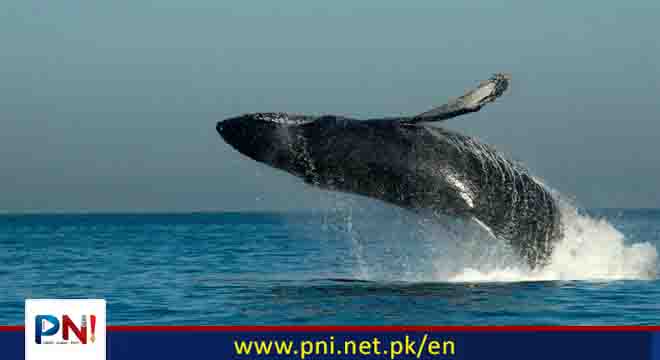Reykjavik, June 20 (AFP/APP): Iceland’s government said Tuesday it was suspending this year’s whale hunt until the end of August due to animal welfare concerns, likely bringing the controversial practice to a historic end.
Animal rights groups and environmentalists hailed the decision, with the Humane Society International calling it “a major milestone in compassionate whale conservation”.
“I have taken the decision to suspend whaling” until August 31, Food Minister Svandis Svavarsdottir said in a statement, after a government-commissioned report concluded the hunt does not comply with Iceland’s Animal Welfare Act.
Recent monitoring by Iceland’s Food and Veterinary Authority on the fin whale hunt found that the killing of the animals took too long based on the main objectives of the Animal Welfare Act.
Shocking video clips broadcast by the veterinary authority showed a whale’s agony as it was hunted for five hours.
“If the government and licensees cannot guarantee welfare requirements, these activities do not have a future,” the minister said.
The country has only one remaining whaling company, Hvalur, and its licence to hunt fin whales expires in 2023.
Another company hung up its harpoons for good in 2020, saying it was no longer profitable.
Iceland’s whaling season runs from mid-June to mid-September, and it is doubtful Hvalur would head out to sea that late in the season.
Annual quotas authorise the killing of 209 fin whales — the second-longest marine mammal after the blue whale — and 217 minke whales, one of the smallest species.
But catches have fallen drastically in recent years due to a dwindling market for whale meat.
– ‘Can’t be done humanely’ –
Iceland, Norway and Japan are the only countries in the world that have continued whale hunting in the face of fierce criticism from environmentalists and animal rights’ defenders.
“There is no humane way to kill a whale at sea, and so we urge the minister to make this a permanent ban,” the Humane Society International’s executive director for Europe, Ruud Tombrock, said.
“Whales already face so many serious threats in the oceans from pollution,
Climate change, entanglement in fish nets and ship strikes, that ending cruel commercial whaling is the only ethical conclusion.”
Robert Read, head of Sea Shepherd UK, said the decision was also “a huge blow” to other whaling nations.
“If whaling can’t be done humanely here… it can’t be done humanely anywhere.”
“Whales are architects for the ocean. They help boost biodiversity, they help fight climate change by affecting the carbon cycling process,” he added.
Opposition to whaling has been on the rise in Iceland with a majority now in favour of dropping the practice.
A survey published in early June indicated that 51 percent of Icelanders were opposed to the hunt and 29 percent in favour, with over-60s those most in favour.
Iceland has depended heavily on fishing and whaling for centuries.
But in the past two decades its tourism industry, including whale watching tours, has blossomed — and the two key sectors of the economy have diverging interests.
Japan, by far the biggest market for whale meat, resumed commercial whaling in 2019 after a three-decade hiatus, drastically reducing the need for imports from Iceland.
Follow the PNI Facebook page for the latest news and updates.









